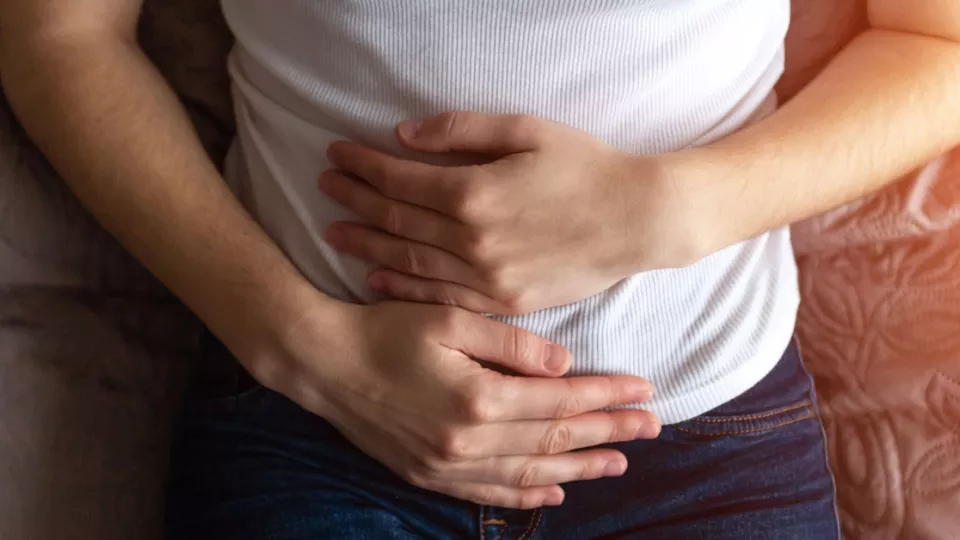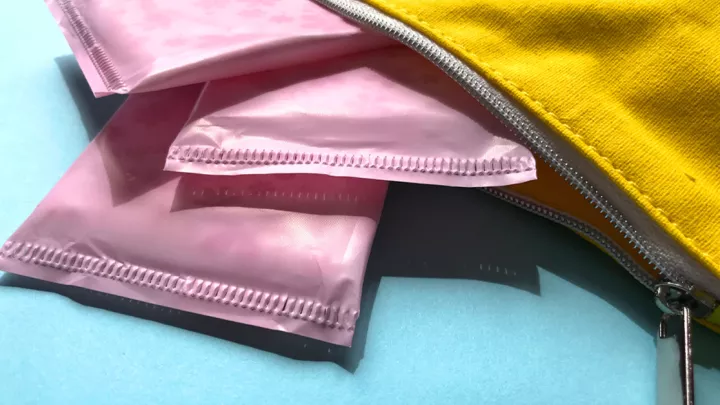
Teens With Heavy Menstruation Don’t Need to Suffer in Silence — Period.
When girls first start getting their periods, their bodies are still adjusting to many changes. As a result, their periods can be light or heavy, long or short, completely irregular and more. If periods are too heavy, this can lead girls to stop participating in activities, bleed through clothing, or simply feel terrible. But a heavy period can also be an indicator of a more serious problem. Children’s Hospital Los Angeles adolescent medicine specialist Claudia Borzutzky, MD, and hematologist Julie Jaffray, MD, want young women to know they don’t just have to grin and bear it through a difficult menstrual cycle. There are options that can make life feel normal again.
How much is too much?
An average period lasts four to seven days. If menstruation lasts longer than that, it is considered prolonged. In the past, medical scientists tended to classify a heavy flow as losing 80 CCs or more of blood each month. But there’s a problem with this methodology; who is measuring period blood loss by volume? Standards have evolved based on how a woman’s period affects her life.
“Too much is what a person feels is too much,” says Dr. Borzutzky, Attending Physician in the Division of Adolescent and Young Adult Medicine at CHLA. “Most women have a sense of what is too much bleeding, and if they feel like it’s too much for them, it’s probably too much for them.”
The following symptoms can indicate a more-than-normal amount of bleeding:
- Saturating a pad or tampon every two hours, or more often than that
- Needing to bring a change of clothes to school to get through the day
- Staining clothes or bedsheets regularly
- Passing clots larger than a nickel or quarter
- Experiencing a “gush” when standing up or moving, for three days or more
- Not participating in school or social activities because of menstruation
“Any time they are changing their life, missing school, or not participating in sports or social activities because of their period is reason enough to seek out medical care,” says Dr. Jaffray, Attending Physician in the Division of Hematology-Oncology at CHLA.
Possible problems
Heavy bleeding during periods can cause anemia, or a lack of iron. When iron stores are low, our bodies don’t function well; it can cause fatigue, paleness, dizziness, and even low brain functioning.
Anovulatory bleeding is common in the first couple of years after girls start menstruating, because the communication systems between the glands in the brain, which control the ovaries and hormone production, and the actual ovaries, aren’t mature yet. When this happens, girls may not ovulate, and so their bodies don’t make the hormone progesterone, which stabilizes the lining of the uterus. This in turn causes that lining to be very fragile, and can cause excessive, “chaotic” bleeding. In rarer cases, anovulatory bleeding can be caused by thyroid problems or polycystic ovary syndrome (PCOS).
As many as 20% of adolescents with heavy menstruation may also have an inherited bleeding disorder. Von Willebrand disease, in which a person is missing the protein necessary to make blood clot properly, is surprisingly common—approximately 1% of the earth’s population is estimated to have it, though many are undiagnosed. If girls have heavy menstruation, it is a good idea to have them checked out for a bleeding disorder by a hematologist.
Platelet disorders, where the blood’s platelets don’t function well, or factor deficiencies, where the blood lacks proteins that help it clot, can also be a possibility. These disorders can have serious health consequences, and can also be diagnosed by a hematologist.
“A family history of bleeding is a big indicator of a bleeding disorder,” says Dr. Jaffray. “For example, if dad or brother has nosebleeds and mom and grandma all had heavy periods.”
Talk to your daughter
Open communication is key. Some families may find the topic of menstruation embarrassing, but that anxiety can cause families to ignore a potentially serious medical problem that may have a relatively easy fix. It’s worth pushing past the awkwardness if it can help your child.
“It's important to check in with daughters and find out how much pain they have with their period,” says Dr. Borzutzky. “Just ask kids, ‘How long is your period lasting? Are you having pain with your period? Are you having to miss stuff because of your period?’ Hopefully, you can find out before it starts to negatively affect their lives.”
Treatment options
Patients with anemia may need a blood transfusion to immediately boost iron stores. Iron supplements can help prevent menstruation-related anemia if taken during the period.
For patients diagnosed with anovulatory bleeding or general heavy menstrual bleeding, doctors recommend daily hormone therapy, often progesterone with or without estrogen. These hormones come in many different forms:
- Daily pills
- Medication patch
- Vaginal ring (like NuvaRing)
- Injections
- Hormonal implants
- Intrauterine device (IUD)
Drs. Borzutzky and Jaffray recently reviewed research on heavy menstruation, and published their findings in JAMA Pediatrics. They found that these methods were all safe and effective ways to treat menstrual problems in most patients.
Hormone therapies are commonly associated with pregnancy prevention, but they also help regulate a woman’s own hormone levels, normalize her cycle and relieve heavy periods. Some parents express concern that putting their daughter on birth control medication may encourage sexual activity, but scientific studies have found no correlation between hormone therapy and sexual behavior. For those who are sexually active, doctors always recommend using condoms, which provide protection against sexually transmitted diseases, and also are a back-up to hormonal methods.
If a patient is diagnosed with a bleeding disorder, they may be prescribed an antifibrinolytic medication, which help stabilize blood clots. These medications, like tranexamic acid or aminocaproic acid, are often taken orally during a woman’s period. There is also a nasal spray, called DDAVP or desmopressin, that can be prescribed for use during menstruation for women with Von Willebrand disease. Very severe cases may be treated with IV medication, but these are rare. More serious platelet disorders may be treated with a platelet transfusion.
With so many options to treat the effects of heavy menstruation and bleeding disorders, parents and teens should know that there is no need to suffer in silence. If a period feels like it’s too heavy and is affecting how you live your life, talk to a doctor to find out what option would be the best for you.
Drs. Borzutzky and Jaffray recommend the following resources for young women’s health:
Make an Appointment
If you’d like to make an appointment with the Hematology – Adolescent Clinic addressing these issues for your teen, contact Sandra Vidal at svidal@chla.usc.edu or 323-361-3936 , or Hematology-Oncology New Referrals at HemoncNewReferrals@chla.usc.edu or 323-361-4100. To make an appointment to discuss other issues affecting your teen, please contact the Teenage and Young Adult Health Center.


